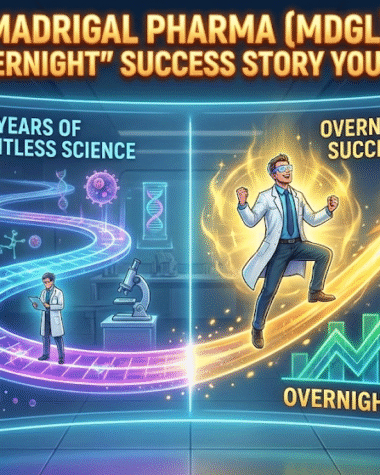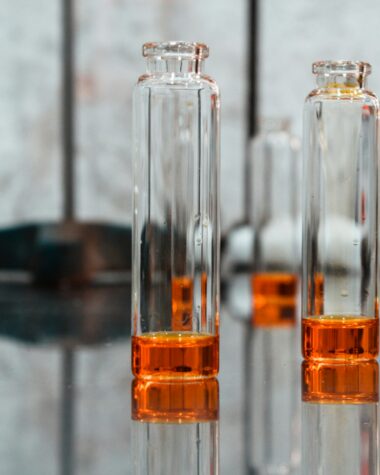INmune Bio Inc. (NASDAQ:INMB)is a clinical-stage biotechnology company pioneering a new frontier in immunotherapy by targeting the innate immune system—the body’s natural first line of defense. Founded with the mission to transform how chronic inflammation and immune dysfunction are treated, INmune Bio stands out in the biotech landscape by addressing the root causes of complex diseases rather than simply managing symptoms. Headquartered in Boca Raton, Florida, with research operations in La Jolla, California and Manchester, U.K., the company has positioned itself at the intersection of innovation, precision medicine, and urgent medical need.
INmune Bio’s core strategy revolves around the modulation of tumor necrosis factor (TNF), natural killer (NK) cell function, and the restoration of immune balance to combat diseases ranging from Alzheimer’s to advanced cancers and rare pediatric disorders. While many pharmaceutical companies have focused their immunotherapy efforts on adaptive immunity and T-cell modulation, INmune Bio is taking a bold, differentiated approach by harnessing the often-overlooked potential of the innate immune system to drive meaningful therapeutic outcomes.
The company’s lead drug candidate, XPro™ (XPro1595), is a next-generation biologic targeting soluble TNF (sTNF), a pro-inflammatory cytokine widely believed to be a key driver of neuroinflammation in conditions such as Alzheimer’s disease, traumatic brain injury (TBI), and treatment-resistant depression. Unlike traditional TNF blockers that impact both beneficial and harmful forms of TNF, XPro™ is designed to selectively neutralize only the toxic form, offering a safer and more targeted therapy. The ongoing Phase 2 ADO2 trial is currently evaluating XPro™ in early Alzheimer’s patients, using advanced biomarkers that focus on neuroinflammation—a strategy that could redefine how neurodegenerative diseases are diagnosed and treated.
INmune Bio is also advancing INKmune®, an NK cell priming technology that enhances the innate immune system’s ability to identify and destroy cancer cells. By transforming resting NK cells into “memory-like” killer cells capable of long-term tumor engagement, INKmune® holds promise across a broad spectrum of hematologic and solid tumor malignancies. The technology is currently being evaluated in castration-resistant prostate cancer and has the potential to expand into additional oncology indications.
In addition to its neuro and oncology platforms, INmune Bio is developing CORDStrom™, a stem cell-based therapeutic derived from umbilical cord tissue for the treatment of rare, life-threatening pediatric diseases. Its lead program targets recessive dystrophic epidermolysis bullosa (RDEB), a devastating genetic condition for which there is currently no cure. The therapy has been granted Orphan Drug and Rare Pediatric Disease designations by the U.S. FDA, positioning it for accelerated regulatory pathways and market exclusivity.
Financially, INmune Bio remains a lean and focused organization with a modest share count and a commitment to capital efficiency. Despite operating in a capital-intensive industry, the company has consistently raised funding through non-dilutive mechanisms, warrant exercises, and carefully structured ATM offerings. Its flexible capital model enables it to advance its multiple clinical programs while preserving long-term shareholder value.
INmune Bio’s differentiated science, multi-platform pipeline, and focus on urgent, high-impact diseases make it a compelling force in the immunotherapy space. With several pivotal data readouts expected in the near future, the company is entering a critical phase of validation that could unlock significant upside for patients, providers, and investors alike. As global healthcare increasingly shifts toward precision medicine and immune modulation, INmune Bio is positioned not just to participate in the future of medicine—but to help define it.
Leading the Charge Against Alzheimer’s with XPro™
At the heart of INmune Bio’s clinical pipeline is XPro™, a selective DN-TNF inhibitor designed to reduce chronic inflammation in the brain—a condition increasingly recognized as a root cause of Alzheimer’s disease. Unlike traditional Alzheimer’s approaches that target beta-amyloid or tau proteins, XPro™ is based on a radically different hypothesis: that neuroinflammation is the real driver behind disease progression. This strategy is being validated through the ongoing Phase 2 ADO2 trial, which is focused on early Alzheimer’s patients selected not by amyloid biomarkers, but by inflammatory markers. This innovative patient selection method positions XPro™ as a first-in-class therapy targeting the core of neurodegenerative disease.
Investors are anxiously awaiting the topline readout from this trial, expected within the next 100 days. If successful, it could not only catalyze a massive revaluation for the stock but also alter the Alzheimer’s treatment landscape permanently. The use of biomarkers outside the amyloid-tau narrative may also gain the attention of regulators and key opinion leaders in neuroscience. Should the ADO2 trial produce statistically and clinically significant results, it would likely propel INmune Bio into the top tier of neurology-focused biotechs.

CHECK THIS OUT: Johnson & Johnson (JNJ) can be the Next Trillion-Dollar Stock and Boston Scientific (BSX) Just Signed a $45M Deal—Here’s What It Means for Investors.
INKmune® Platform: Unlocking the Power of Natural Killer Cells in Cancer
While much attention is rightly focused on XPro™, INmune is also pushing the frontier of cancer immunotherapy with its INKmune® platform. This technology primes a patient’s own natural killer (NK) cells to develop memory-like behavior, increasing their persistence, targeting ability, and tumor-killing efficiency. The company’s efforts in metastatic castration-resistant prostate cancer (mCRPC) are yielding promising early clinical data. As INKmune transitions from Phase 1 to more focused Phase 2 programs, it is gaining attention for its tumor-agnostic potential and strong safety profile. The pivot toward solid tumors—often considered the final frontier of immuno-oncology—marks a significant strategic evolution for the company.
Moreover, INmune is expanding its trial footprint by working with VA hospitals, making its NK cell platform more accessible to underserved populations. This strategic move may not only boost enrollment rates and trial diversity but also pave the way for broader post-approval real-world data collection.
CORDStrom™ and the Rare Disease Expansion
Further expanding its platform potential, INmune Bio has added CORDStrom™ to its pipeline—an umbilical cord-derived cell therapy for the treatment of recessive dystrophic epidermolysis bullosa (RDEB), a rare and devastating genetic condition. The MissionEB trial has already produced early data showing improved skin integrity and a reduction in patient itch severity, lending hope to families and clinicians seeking non-invasive, systemically active therapies.
The therapy has been granted both Orphan Drug and Rare Pediatric Disease designations by the FDA, which come with benefits such as regulatory support, market exclusivity, and potential priority review vouchers. A Biologics License Application (BLA) for CORDStrom™ is expected to be submitted in 2025, with regulatory approvals potentially arriving by 2026 in the U.S., U.K., and EU markets.
Financial Position: Tight, but Tactically Managed
INmune Bio reported a net loss of approximately $42.1 million for the fiscal year ending December 31, 2024—higher than the $30 million loss reported in 2023. The increase primarily stems from aggressive investment in R&D, which jumped to $33.2 million from $20.3 million. This reflects a ramp-up of clinical activity, particularly in Alzheimer’s and oncology trials. General and administrative expenses remained flat, showing disciplined cost control in non-research operations.
The company ended 2024 with approximately $20.9 million in cash and equivalents, and since then, it has raised an additional $5.4 million via its at-the-market (ATM) facility. While the cash runway currently extends only through Q3 2025, management has several levers available, including warrant exercises that could bring in up to $30 million in fresh capital without heavy shareholder dilution.
Institutional Sentiment and Analyst Ratings Provide Validation
Despite short-term volatility and recent bearish options activity—highlighted by a Put/Call ratio of 2.81 and increased open interest in July 2025 $2.50 and $5.00 puts—analyst coverage remains solidly bullish. Of five analysts covering the stock, all maintain an “Outperform” or equivalent rating, with an average target of $23.40 and a high estimate of $30. The consensus rating stands at 1.8 on a scale where 1 is Strong Buy and 5 is Sell.
These targets imply that Wall Street sees the recent dip in INMB’s share price as an opportunity rather than a red flag. GuruFocus, however, paints a more conservative picture, assigning a one-year fair value of $1.17 based on historical valuation multiples. This discrepancy between fundamentals-based and sentiment-driven models presents a classic asymmetrical opportunity for speculative investors.
Upcoming Catalysts and Market Outlook
Looking ahead, several key catalysts could significantly move the needle for INMB. The most impactful is the ADO2 topline data, which is expected to be released in the coming weeks. Positive results could transform the company’s valuation profile almost overnight. In parallel, updates from the INKmune® oncology program and a potential BLA filing for CORDStrom™ in RDEB create multiple shots on goal.
Furthermore, as investor focus increasingly shifts to differentiated Alzheimer’s treatments—especially those avoiding the pitfalls of amyloid-targeting monoclonal antibodies—INmune Bio’s inflammation-first approach may emerge as a compelling alternative. Given that the global Alzheimer’s therapeutics market is projected to surpass $14 billion by 2030, a small slice of market share could drive significant revenue upside.
Final Thoughts: A High-Risk, High-Conviction Bet on Disruption
INmune Bio represents a rare breed in the biotech landscape—an early-stage company with clinical validation across three platforms, FDA-backed designations, and near-term readouts with blockbuster potential. While the path forward is not without risks—including trial outcomes, regulatory uncertainties, and the need for capital—the company’s differentiated science, expanding pipeline, and growing institutional support position it for transformative success.
For speculative investors with a long-term horizon and an appetite for clinical-stage biotech risk, INMB offers an extraordinary opportunity. As the countdown to its Alzheimer’s data begins, INmune Bio may not just be a bet on a stock—it could be a stake in the future of how neuroinflammatory diseases are treated.
CHECK THIS OUT: Johnson & Johnson (JNJ) can be the Next Trillion-Dollar Stock and Boston Scientific (BSX) Just Signed a $45M Deal—Here’s What It Means for Investors.








